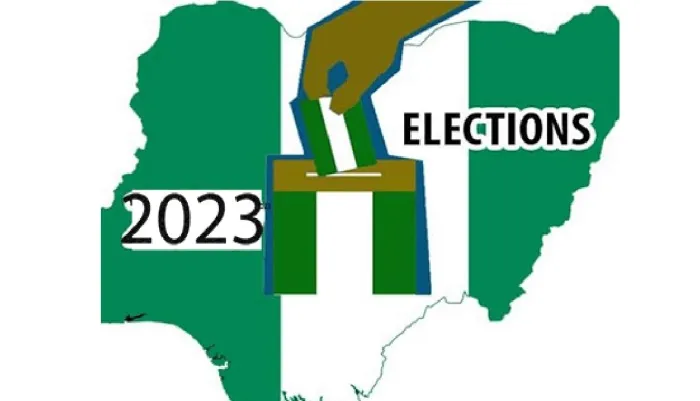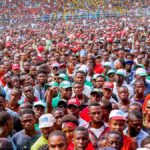This week, the National Institute for Legislative and Democratic Studies organised a high-level forum on political communication and issue-based politics in the run up to the 2023 elections.
In his speech at the event, Speaker Femi Gbajabiamila made the point that politicians in a democracy should run on the basis of their record but in our context in which so many of them have no records to show, they change the agenda by attacking personalities and engaging in divisive politics. The problem is that it works.
2023 Elections: Trust and data accuracy come under scrutiny
2023: IGP puts police commanders on alert, bars Amotekun, ESN, others from election campaigns
By evoking emotions and castigating perceived political enemies with hate and dangerous speech, they generate support to remain powerful actors in the political arena. The Electoral Act 2022 has significant provisions for sanctioning such behaviour and it is important that they are used so that the forthcoming campaigns can remain on the healthier terrain of issue-based politics.
In his keynote address to the forum, Bishop Mathew Hassan Kukah drew attention to the wider context. Since 1989 and the collapse of the Berlin Wall, identity politics has become dominant and has been promoted by populist regimes who build their political support by replacing reason with emotion. Nigerians need to be conscious of the fact that desperate politicians will continue to seek to promote the embers of hate and division as the 2023 election campaign heats up and it is important that we do not collectively fall prey to the agents of division in our society. For example, the Muslim-Muslim presidential ticket of one of the leading political parties has already become a fulcrum for promoting divisive politics.
Also, this week, the alumni association of the National Institute for Policy and Strategic Studies held a forum on Nigeria’s national unity in the build-up to the 20223 General Elections. In his keynote address, General Martin Luther Agwai called on Nigerians to be steadfast in nation building in spite of the inadequacies of the political class. He drew attention to the importance of one of the posters carried by young people during the #EndSARS demonstrations: “THE POWER OF THE PEOPLE IS GREATER THAN THAT OF THE PEOPLE IN POWER.” In other words, what is important today is to make real the core value of democracy in terms of peoples’ power. Every society, he explained, has fractures over which conflicts arise. What is important is to be able to address the factors that led to the conflicts.
In both fora, there were a lot of interrogations about the seeming absence of Nigeria’s elite consensus on nation building. My position is that there has always been a clear elite consensus in our country that developed between the rejection of the 1946 Richards Constitution and the emergence of the McPherson’s Constitution five years later. Our nationalist leaders agreed that Nigeria should not have an excessively strong national executive that would evoke in components of the elite a fear of domination. It was on that basis that federalism emerged as the elite consensus for governing Nigeria. Today, Nigeria is marked by a strong resurgence of the fear of domination by a group that wields executive power nationally. In other words, Nigerians feel strongly that the protection provided to component units of the Federation by the federal arrangement has weakened considerably and too many do not feel their collective interests are being served. This is the context that propelled the call for restructuring of the Federation in recent years. We have to create conditions for addressing the problem in the next dispensation.
The rational reason for keeping Nigeria together as a nation is that it is virtually impossible to pull us apart:
“There is no easy way to pull this country apart. The problems arising from such an exercise will be far bigger than the problem of trying to keep it going. The value of the size, the market, and the varieties of cultures etc. are important and should not be neglected.”
Prof Ade Ajayi, The Nigerian Social Scientist, Vol 5, No 1, 2002, P.56
Prof Ade Ajayi is right in the quote above on both counts. Breaking up Nigeria is no easy task. Indeed, it is much easier to keep it together than to carve it up. Secondly, the potential of Nigeria growing into a great and advanced country remains real. Nonetheless, Nigeria is confronting a number of critical political challenges that are raising serious questions about its identity and survival as a democratic Federal Republic. First, there is a dramatic breakdown in security provisioning that has created a climate of disillusion in the state as a protector for citizens. Secondly, there is a significant rise and expansion of sectarian conflicts, both ethnic and religious fuelled in part by massive disinformation and hate speech in both the traditional and social media. Thirdly, Nigeria’s elite consensus on federalism and the federal character principle as a guarantee against group discrimination and marginalisation is badly shaken. The risk, therefore, is that even if the drift towards disintegration is the worst possible outcome, the country is being pushed towards that direction. The forthcoming elections would be an important moment in this regard. Holding free, fair and credible elections would provide a strong pillar of support to nation building. We ALL have a collective responsibility to stop the drift and seek pathways to re-establish confidence in the nation building project.
The Nigerian State is undergoing a three-dimensional crisis. The first one affects the political economy and is generated mainly by public corruption over the past four decades that has created a run on the treasury at the national and state levels threatening to consume the goose that lays the golden egg. The second one is the crisis of citizenship symbolised by ethno-regionalism, the Boko Haram insurgency, farmer-herder killings, agitations for Biafra, militancy in the Niger Delta and indigene/settler conflicts. The third element relates to the frustration of the country’s democratic aspirations in a context in which the citizenry believes in “true democracy” confronted with a reckless political class that is corrupt, self-serving and manipulative.
These issues have largely broken the social pact between citizens and the State. That is why today, Nigerians find themselves in a moment of doubt about their nationhood. It is similar to the two earlier moments of doubt we have experienced, 1962-1970 when we went through a terrible civil war and the early 1990s when prolonged military rule created another round of challenges to the National Project. We survived those two moments and my message today let us see the current crisis and the elections as an opportunity to surge forward in fixing Nigeria.




